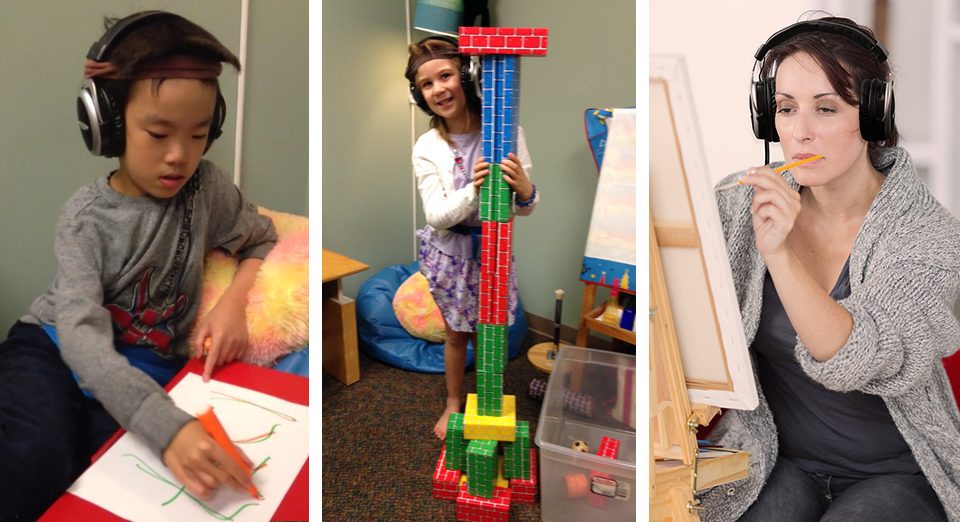How to Rewire Your Brain for Better Sleep
If you have trouble falling asleep, you aren’t alone. One in four Americans develops insomnia at some point -- and while most people recover, sleep problems can sometimes last for months or even years[*]. Lack of sleep may be tied to stress, anxiety, trauma, sensory sensitivity, autism, and a variety of other causes.
At Brain Harmony, we’ve worked with thousands of patients, many of whom came in struggling to sleep well. We have a wealth of therapeutic methods, brain-based technology, and other tools that can help you retrain your nervous system for rest and relaxation.
If you’re having trouble sleeping, we can help. Here’s a look at why sleep is important, and how you can use brain-focused occupational therapy to get deeper, more restorative sleep.
The Importance of Sleep
Sleep is essential to both mental and physical health. It’s during sleep that your brain recharges itself, gets rid of waste byproducts that accumulate throughout the day, and organizes knowledge, experiences, and memories[*].
Sleep also affects mood and behavior. We see a lot of patients (especially children) who come in with severe behavioral or emotional problems. It turns out they aren’t sleeping well; after we work to improve their sleep, their issues improve almost immediately.
When you look at the research, perhaps that isn’t so surprising. Studies show that poor sleep increases depression, anxiety, anger, stress, confusion, and fatigue[*][*]. Cognitive function declines as well -- people who don’t sleep well have slower reflexes, worse memory, and trouble focusing[*].
Finally, lack of sleep disrupts hormone production and metabolism, which can lead to weight gain and further issues with mood and mental performance[*].
If you’ve ever tried to function without sleep, you know how important it is to your wellbeing. Even a few nights of bad sleep can have a profound effect on how you think and feel.
Treatment Methods to Improve Sleep
At Brain Harmony we use a variety of methods to improve sleep. Our licensed therapists will work with you to create a personalized plan of care based on your unique needs.
We’ll start by measuring your baseline sleep performance, as well as a variety of cognitive functions. Based on the results, we’ll figure out exactly what to do to help you get a good night’s rest.
If you’re struggling with chronic stress or anxiety, for example, we may suggest the Safe and Sound Protocol, a 5-day brain training program that calms down nervous system activity and promotes relaxation at the physiological level.
If it takes you a long time to fall asleep, we may recommend therapeutic exercises to wind your brain down at the end of a long day.
If you have sensory sensitivity and find the feel of sheets and pillows, sounds, changes in temperature, and other sensory experiences unpleasant at night, we can use brain training technology and exercises that help you reorganize your brain, decreasing your sensory sensitivity so you can fall asleep comfortably.
You may also benefit from Alpha Stim AID, a cutting-edge technology that sends tiny electrical signals through your brain, activating areas of your brain that can help you fall asleep. Many of our patients also see improvements in anxiety and depression after using Alpha Stim.
Our plan of care changes based on your unique needs. Whatever you’re struggling with, we’ll find the best approach to help you improve.
How Brain Harmony Helped Anne Sleep Better
At only eight years old, Anne was one of our younger sleep patients. She came to therapy for irritability, oppositional behavior, and tantrums that often lasted for hours. She also shared feelings of self-loathing and guilt.
After taking Anne through a few assessments, our licensed occupational therapists discovered that she wasn’t sleeping well. Even when she slept through the night, Anne’s sleep quality was low. She wasn’t waking up well rested, and the lack of sleep was affecting her mood and behavior.
We recommended that Anne try the Safe and Sound Protocol to help calm her nervous system and create a feeling of comfortable safety. We also suggested the DreamPad, a special pillow that converts music to gentle, soothing vibrations only the user can hear. Further we used a muli-sensory tool to better integrate her sensory system so she was less reactive to sensory input.
Here’s a testimonial from Anne’s Mother, shortly after Anne started her Brain Harmony plan of care:
"Brain Harmony recommended Anne start with the DreamPad pillow at night. I was shocked what a difference this pillow made right from the start. We began using the pillow every night which changed our lives. Almost immediately she began to have 'good days'. We don’t go anywhere without her DreamPad!"
If you’re having trouble sleeping, we want to hear about it. Schedule a free consultation to talk to one of our licensed therapists about your needs. Together, we can figure out a plan of care to help you enjoy deep, restorative sleep, every night.



